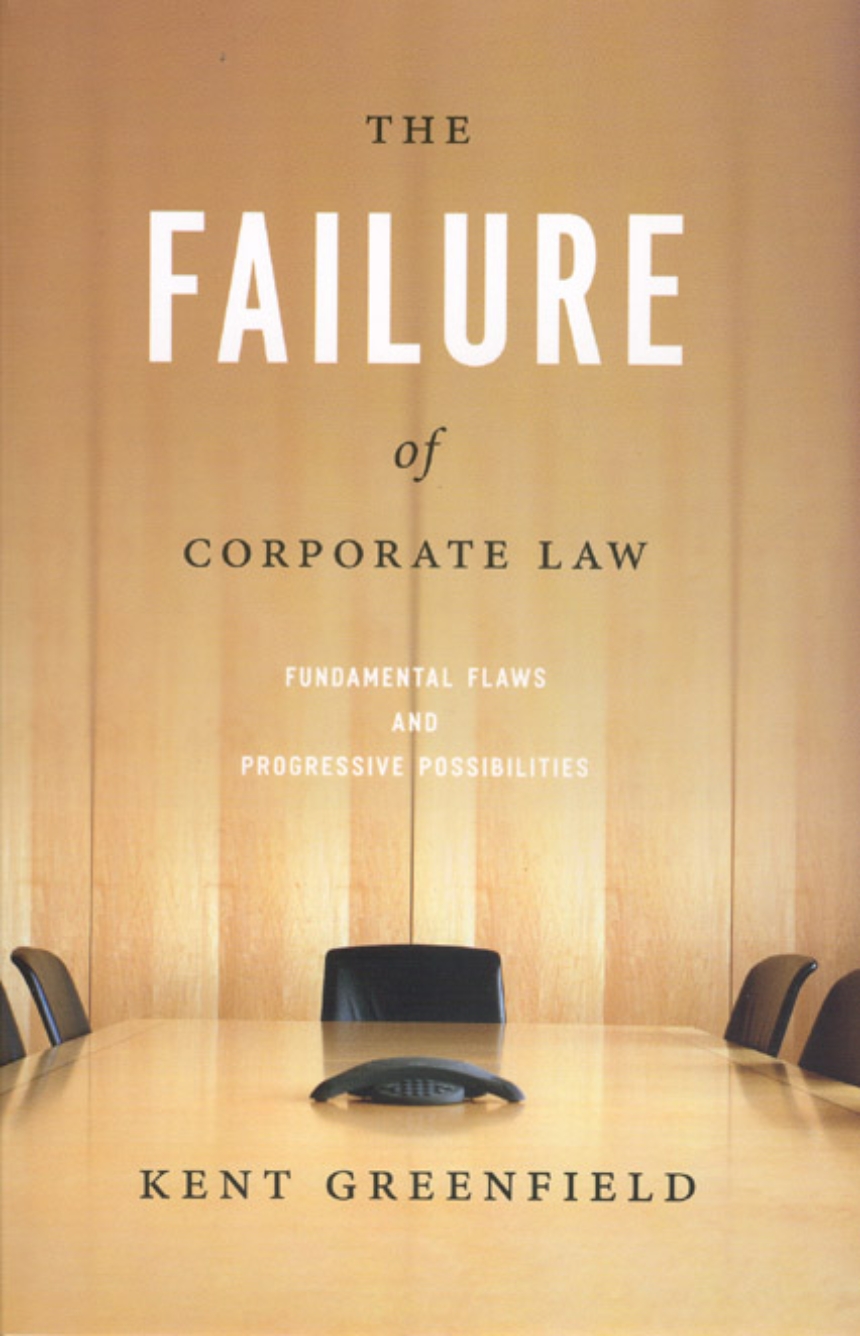The Failure of Corporate Law
Fundamental Flaws and Progressive Possibilities
The Failure of Corporate Law
Fundamental Flaws and Progressive Possibilities
When used in conjunction with corporations, the term “public” is misleading. Anyone can purchase shares of stock, but public corporations themselves are uninhibited by a sense of societal obligation or strict public oversight. In fact, managers of most large firms are prohibited by law from taking into account the interests of the public in decision making, if doing so hurts shareholders. But this has not always been the case, as until the beginning of the twentieth century, public corporations were deemed to have important civic responsibilities.
With The Failure of Corporate Law, Kent Greenfield hopes to return corporate law to a system in which the public has a greater say in how firms are governed. Greenfield maintains that the laws controlling firms should be much more protective of the public interest and of the corporation’s various stakeholders, such as employees. Only when the law of corporations is evaluated as a branch of public law—as with constitutional law or environmental law—will it be clear what types of changes can be made in corporate governance to improve the common good. Greenfield proposes changes in corporate governance that would enable corporations to meet the progressive goal of creating wealth for society as a whole rather than merely for shareholders and executives.
300 pages | 6 x 9 | © 2007
Economics and Business: Economics--Government Finance
Law and Legal Studies: Law and Economics, Law and Society
Political Science: Public Policy
Reviews
Table of Contents
Introduction
Part One - Fundamental Flaws
1. September 11 and Corporate Law
2. Corporate Law as Public Law
3. Workers, Shareholders, and the Purpose of Corporations
4. Corporations and the Duty to Obey the Law
5. Democracy and the Dominance of Delaware
Part Two - Progressive Possibilities
6. New Principles, New Policies
7. Corporate Governance as a Public Policy Tool
8. Workers and Corporate Fraud
9. Irrationality and the Business Judgment Rule
Postscript: Getting Real about New Possibilities
Notes
Index
